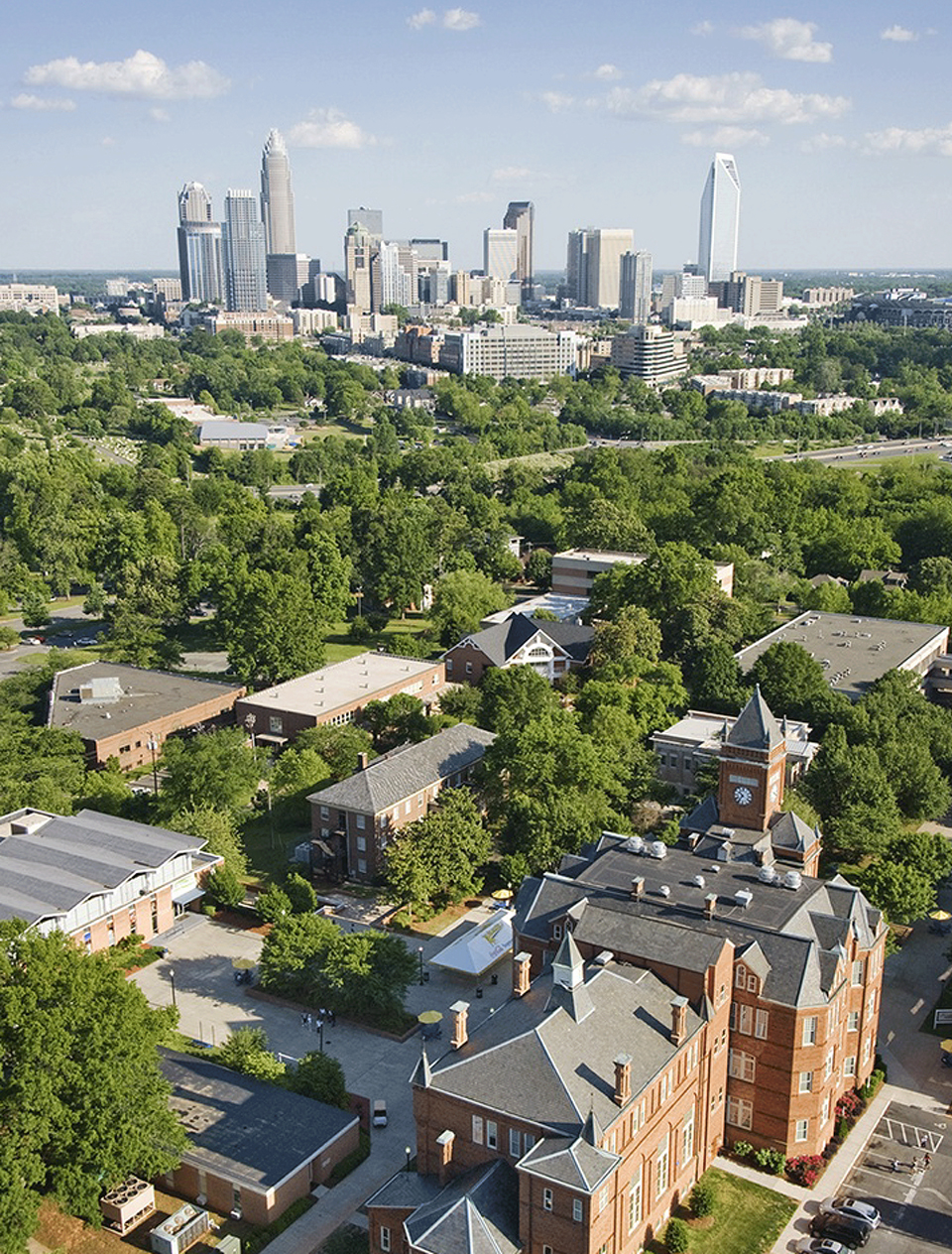
How Knight support for three projects will help build a more successful, vibrant Charlotte, N.C.

Photo: West End neighborhood of Charlotte viewed from Johnson C. Smith University. Courtesy Charlotte City Center Partners.
I’ve lived in Charlotte pretty much since 1971, and to say that it has changed over the last 40 years would be an understatement. A lovely Southern town has become a significant New South city with all of the accompanying challenges.
I’ve seen many of these changes up close in my role as Knight’s program director.
Charlotte has long been a regional arts and culture hub, but it became even more so with the Levine Center for the Arts. The complex that includes Knight Theater opened in 2009 just as our banking town and the nation were reeling from the financial crisis.
The museums – the Mint, Gantt and Bechtler – continue to attract new audiences, and the question has become: What will happen on the north end of Tryon Street, less than a mile away? A new master plan imagines fewer skyscrapers and more street-level shopping as well as activities popping up around Discovery Place, the Charlotte-Mecklenburg Library and a renovated Carolina Civic Theatre.
Charlotte’s growth, while good for the economy and the arts, has challenged other things we care about: air and water quality and our beautiful trees. Development pressures and the aging of our majestic oaks have led the city to set a 50 by 50 goal – to increase our tree canopy to 50 percent by 2050. To reach that goal, we’ll need to plant 500,000 trees. You and I and many others will have to act to reach that goal.
With the arts, the beauty of the city and now the coming of Google Fiber, Charlotte seems like the land of opportunity. The reality, however, is that’s certainly true for many, but it’s not true for all.
A recent study ranked Charlotte last out of 50 metropolitan areas on economic mobility, meaning if you’re born in poverty, it’s harder for you to escape it over time. A community task force is exploring what that means. Given our history of segregated neighborhoods and now resegregated schools, these volunteers will suggest how and where the community should make changes.
One change could be to make sure all our residents have high-speed Internet access, to make Charlotte a truly connected city. Here’s one example of how the digital divide affects opportunity. Many Charlotte-Mecklenburg Schools students have a computer in the classroom but no computer or Internet access at home. How do we close their homework gap?
Our city is facing other changes and challenges: the growth of our international population and a visible homeless population; blending old and new residents in changing inner-city neighborhoods; creating new bike trails and other transportation options; supporting new arts groups.
Charlotte generally takes on its challenges, and we’re blessed to have so many working on these and many other important issues in our community.
I highlighted three because they connect to grants just approved by the Knight Foundation Board of Trustees. They are:
· $1.6 million to Foundation for the Carolinas to provide technology planning and tools in the renovated Carolina Civic Theatre. The promise of the theater is to create a lively, interactive center of public life on the north end of Tryon Street. It will be exciting to see the theater come back to life in new ways in 2018.
· $500,000 to Queens University of Charlotte to support the renovation of the new Knight-Crane Hall on campus. Home of the James L. Knight School of Communication, the new building will make more visible the school’s mission of increasing digital and media literacy on campus and in the community. The school is organizing a digital divide initiative.
· $240,000 to Trees Charlotte to grow its role of using volunteers to plant and maintain trees across the city, plus a $2 million endowment to provide ongoing operating support for this young organization. The city’s ambitious tree canopy goal requires a private-sector partner. Trees Charlotte was created just three years ago to fill that role, and it’s already having a big impact. I believe this public-private partnership will pay benefits for years to come.
I’m proud of these organizations and their contributions to making Charlotte a place that attracts and retains talented people, expands economic opportunity for all and increases civic engagement.
In a few weeks, I’ll be signing off from my post as Charlotte program director. I’ve called it retirement, but it’s probably more of an extended sabbatical. In any case, you can be sure I’ll be watching and sometimes joining you in making Charlotte an even better place to live.
Susan Patterson is the Charlotte program director for Knight Foundation. Email her via [email protected] and follow her on Twitter @susanpcharlotte.
Recent Content
-
Communitiesarticle ·
-
Communitiesarticle ·
-
Communitiesarticle ·


